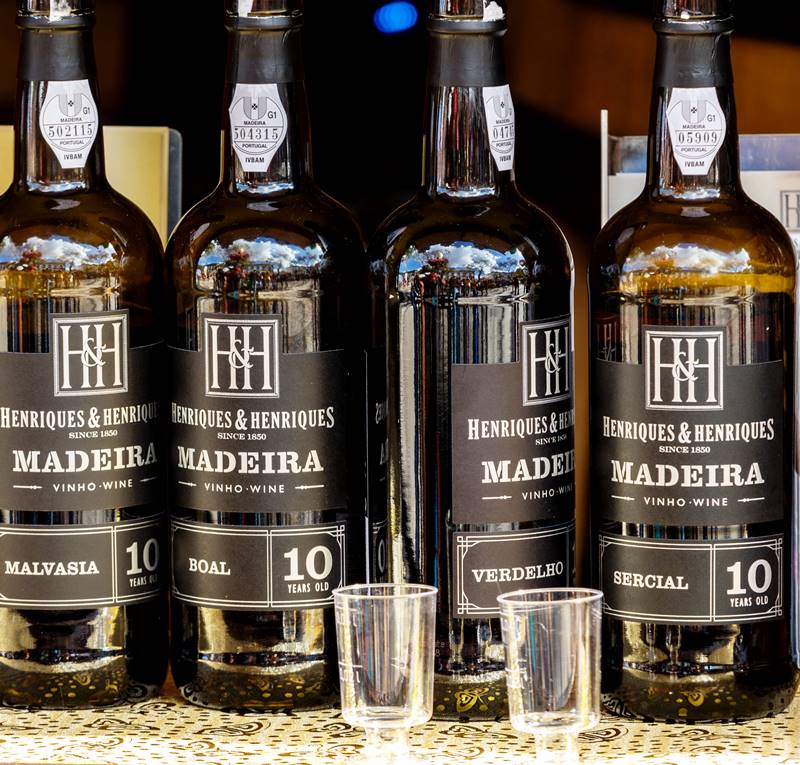Madeira Wine Under Threat
Iconic Madeira Wine Faces Extinction as Vineyards Vanish
2024-07-19

Madeira wine, celebrated for its exceptional longevity and quality, is facing significant threats from burgeoning tourism and environmental changes. Esteemed for centuries, especially by the British and Americans, this illustrious wine now finds itself at risk due to a variety of pressing issues.
Since the onset of the Covid-19 pandemic, Madeira, a small volcanic island belonging to Portugal, has seen a marked increase in real estate development. Driven by the influx of foreigners purchasing properties and a surge in mass tourism, this demand for land has prompted many vintners to sell their vineyards at high prices. This trend has severely impacted the local community, pushing them out of the market.
João Teixeira, a winemaker at Justino's since 2000, has highlighted the particularly alarming situation on the island's south coast. Areas such as Câmara de Lobos and Estreito de Câmara de Lobos, which account for more than half of Madeira's wine production area, are feeling the strain. Despite the Portuguese government removing real estate purchases from its controversial golden visa scheme last October, property prices continue to soar.
Tourism, while vital for Madeira wine sales, is also exerting pressure on land traditionally used for vineyards. In 2023, Madeira recorded over 10.9 million tourist overnight stays, a 13.6% increase compared to 2022, according to the Regional Directorate of Statistics of Madeira (DREM).
The sale of land and the aging population of wine growers, combined with difficulties in mechanizing harvests and competition from banana and sugarcane plantations, have led many vintners to consider selling their lands. This trend could significantly reduce the production of Tinta Negra, the most cultivated grape variety on the island.
The Madeira Wine, Embroidery, and Handicraft Institute (IVBAM) has documented a decrease in the number of vintners, from 1,900 in 2000 to 1,147 in 2023. Competition for grapes is fierce, with producers like Blandy's struggling to secure their supply. Chris Blandy, CEO of Blandy's, has described the grape market as akin to a souk, where slower vintners are left without provisions.
Francisco Albuquerque, director of wines and winemaker at Blandy's, has emphasized that grape varieties need to be cultivated in Madeira's seven microclimates. The sale of land and the abandonment of vineyards threaten to displace these varieties to less suitable regions.
Climate change has exacerbated these problems, impacting Madeira's viticulture. Last year, the harvest reached 4,000 tons, but this year it is expected to fall to around 3,500 tons. A warm winter, with average temperatures rising by 4 degrees in January, has brought forward the harvest in some areas and significantly reduced the production of Sercial grapes.
Banana production in Madeira has grown considerably since 2009 when the government intervened to support the indebted banana industry. In 2022, revenues generated by banana sales surpassed those of Madeira wine, with €21.2 million compared to €21.2 million, respectively. Banana sales increased by 10.8% last year, while Madeira wine sales grew only 1.2% in value.
The decline in the number of vintners and the rise in banana cultivation are prompting wine producers to call for the Madeira regional government's intervention to preserve vineyard areas by creating viticultural reserves. Blandy's and other producers have urged IVBAM to update the vineyard registry, a task not undertaken since 2008, and to increase grape prices and EU subsidies for Tinta Negra production.
Chris Blandy has stressed the importance of developing a sustainable long-term strategy for tourism and wine in Madeira. The inclusion of Madeira wine in the UNESCO Intangible Cultural Heritage list could help preserve this viticultural heritage, but swift and effective action is required from both the government and producers.
Founded in 2007, Vinetur® is a registered trademark of VGSC S.L. with a long history in the wine industry.
VGSC, S.L. with VAT number B70255591 is a spanish company legally registered in the Commercial Register of the city of Santiago de Compostela, with registration number: Bulletin 181, Reference 356049 in Volume 13, Page 107, Section 6, Sheet 45028, Entry 2.
Email: [email protected]
Headquarters and offices located in Vilagarcia de Arousa, Spain.